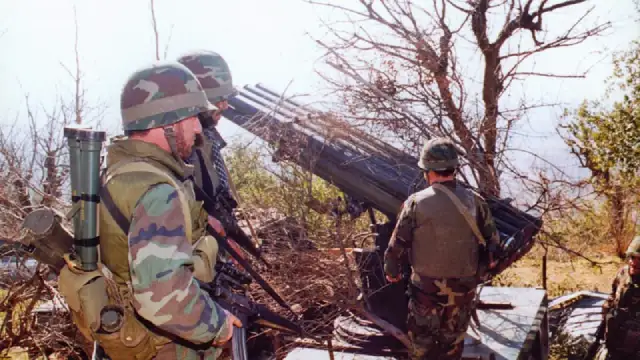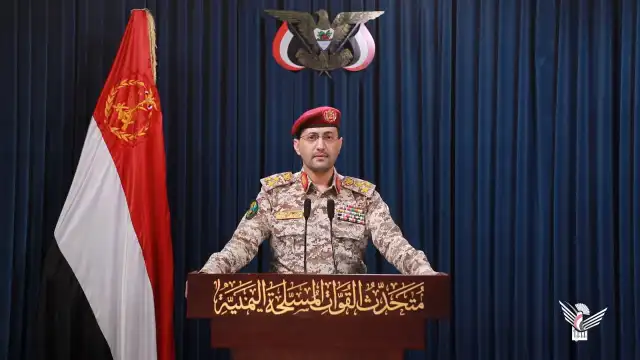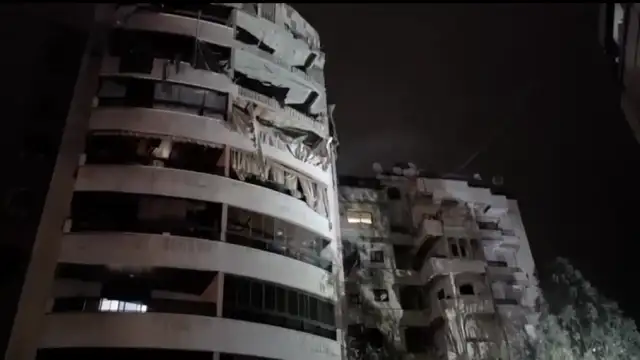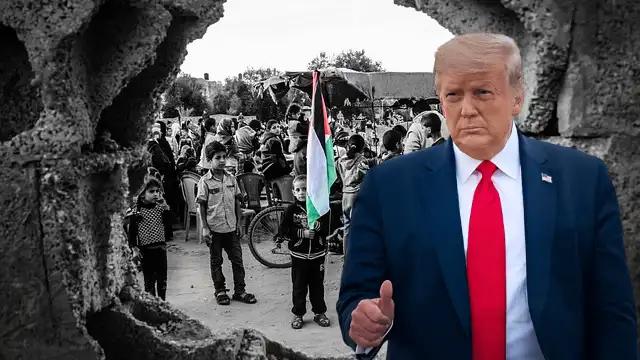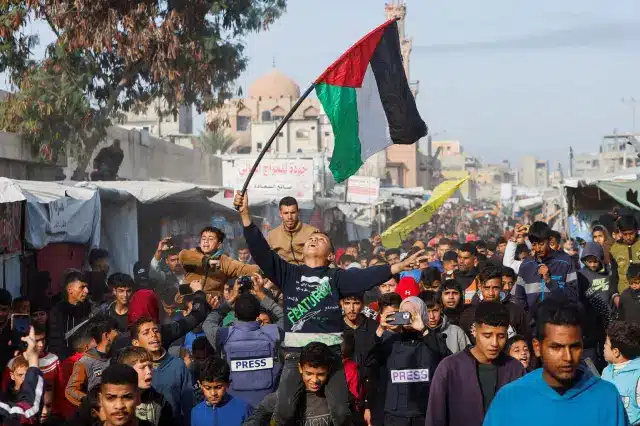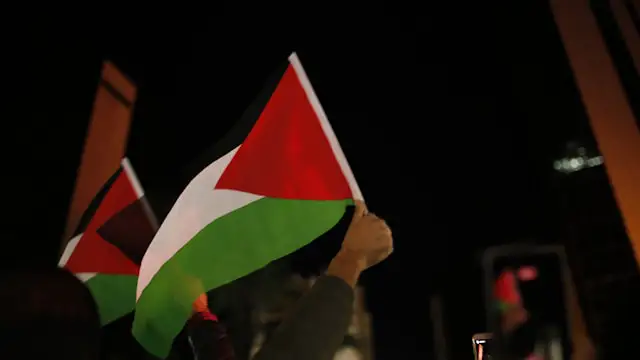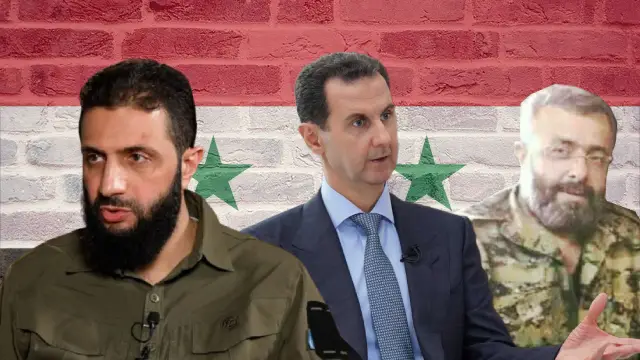Lebanon has been experiencing a major political crisis caused by the government’s decision to disarm the resistance movement Hezbollah under American pressure. Hezbollah’s Political Council’s Deputy Chief Mahmoud Komati vehemently opposed the Lebanese government’s push to disarm the Islamic resistance movement Hezbollah under American-Israeli pressure.
“The government is proceeding on a path imposed upon it to satisfy the American party. No one can disarm Hezbollah. The decision to disarm Hezbollah is merely ink on paper,” Komati said on Thursday, August 7th.
Massive protests have erupted across southern Lebanon against the government’s proposal to disarm Hezbollah, following American diktat. Thousands, cutting across sectarian divides, rallied across different towns in Lebanon on Thursday evening to register their discontent against the decision of the US-backed government.
On Thursday, the Lebanese government acknowledged that it has approved the objectives outlined in US envoy Tom Barrack’s paper.
According to the decision, Lebanon shall implement the Taif Agreement, the Lebanese Constitution, and UN Security Council resolutions, particularly Resolution 1701 (2006), and take necessary measures to extend its sovereignty over all its territories, aiming to strengthen the role of legitimate institutions, establish the state’s exclusive authority in deciding matters of war and peace, and ensure that weapons are solely in the hands of the state across all Lebanese territories.
This essentially means disarming Hezbollah, which has been at the forefront of the resistance struggle against Israeli aggression and occupation.
Mr Barrack’s proposal says that the Lebanese government should ensure the sustainability of the cessation of all forms of hostilities (land, air, and sea) with Israel through organised steps leading to a permanent, comprehensive, and guaranteed solution.
It emphasises ending the armed presence of all non-governmental entities, including Hezbollah, across all Lebanese territories, both south and north of the Litani River, while providing necessary support to the Lebanese Army and Internal Security Forces.
It calls for Lebanese Army deployment in border areas and sensitive internal regions with appropriate support.
Mr Barrack’s proposal remains non-committal regarding Israel’s withdrawal from the “five points”, and pushes the onus of resolution of border issues and prisoner matters to diplomatic means via indirect negotiations, while saying it will ensure Israel’s withdrawal from Lebanese territories and the cessation of all hostilities, including land, air, and sea violations.
Earlier, the Hezbollah and Amal Movement ministers said they would withdraw from the ongoing Lebanese cabinet session if there is insistence on discussing the US proposal, which demands that Hezbollah disarm. Later, in protest, the ministers of Amal and Hezbollah, along with Minister Fadi Makki (the Shi’a ministers), withdrew from the Cabinet session in Baabda.
Highlighting the resistance’s reluctance to heed the American proposal, Mr Komati said, “Talk about disarming Hezbollah is futile and will not be implemented, and the decision is in our hands in exchange for what we have provided. We will not surrender our weapons, nor will we yield to American and Israeli pressures.”
As Hezbollah and Amal ministers walked out of the cabinet meeting on Thursday evening, they claimed that any resolution passed later would lack constitutional legitimacy.
Speaking to the press, Minister Fadi Maki said, “I withdrew because there is something significant in the American envoy’s paper, and this matter is beyond our ability to handle.”
Meanwhile, Labour Minister Mohammad Haider said, “We withdrew from the government session after the refusal to postpone the discussion of Barrack’s paper until the army presents its plan on August 31st.”
“Talk about disarming Hezbollah is futile and will not be implemented, and the decision is in our hands in exchange for the sacrifices we have made,” Komati said.
“The exclusivity of weapons does not include resistance weapons that are internationally legitimised under Israel’s occupation of parts of our territories,” the Hezbollah leader added.
Thursday’s developments indicate that President Joseph Aoun, Prime Minister Nawaf Salam, and ministers of the US-backed bloc are insisting on overturning the National Pact and the Taif Agreement, effectively handing over a sovereign concession to Washington and Riyadh.
Highlighting this, Ali Al-Khatib, the deputy chief of the Lebanese Supreme Islamic Shia Council, said, “[US envoy] Barrack has achieved his objective of shifting the confrontation from Lebanese-Israeli to a political confrontation within the Lebanese government.”
Underscoring unity among different sects on the question of Hezbollah’s disarmament, the Emir of the Islamic Unification Movement ( a Lebanese Sunni movement), Sheikh Bilal Shaaban, has strongly condemned the decision.
“We warn the Lebanese government against succumbing to external dictates aimed at stripping the honourable resistance of its arms, our nation’s last line of defence against the Zionist enemy and Western imperial projects,” Mr Shaaban said.
“Any interference with the resistance’s weapons constitutes a direct assault on national dignity, an erosion of sovereignty, and a dangerous prelude to internal strife from which no one will be spared,” he underlined.
“Such actions will face widespread popular rejection and will plunge the country into a national crisis with far-reaching and undesirable consequences. Those who design or implement such plans shall bear full responsibility for the ensuing security and political fallout,” he warned.
Meanwhile, regional players have also opposed the Aoun-Salam government’s push for Hezbollah’s disarmament.
Yemen’s Ansarullah Movement’s spokesman Al-Bukhaiti released a statement on the potential disarmament of Hezbollah.
“The decision to disarm Hezbollah is an American-Israeli decision, and its implementation will ignite the spark of discord not only in Lebanon but in the region. Changing the course of the conflict from an Arab-Israeli conflict to an Arab-Arab conflict only serves the enemies of the nation, and Nawaf Salam’s government must reconsider its calculations,” the statement said.
In its official statement, the Syrian Social Nationalist Party said that the decision represents a direct threat to Lebanon, its sovereignty, independence, and very existence. “If implemented, it would open the path for the enemy to once again reach the capital, as has tragically occurred in the past. History is a witness to these catastrophes,” the party said.
“This decision is not only dangerous; it is suspicious. It appears designed to weaken the army and sow division, eroding the core of national unity. Those behind it will be judged by history, which never forgets those who abandon their nation’s cause—but always remembers the honourable who sacrificed for their land and people,” the party added.
It remains to be seen whether the US-backed Aoun-Salam government moves ahead with its agenda to disarm Hezbollah or it retreats due to the popular discontent.
Join our channels on Telegram and WhatsApp to receive geopolitical updates, videos and more.

